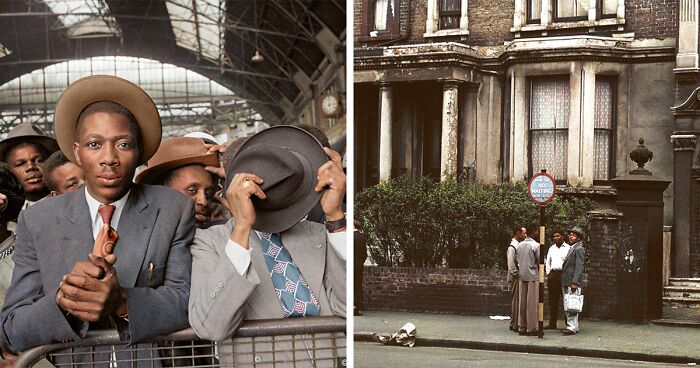
I Colourised These Photos Of Black People In Britain To Celebrate Our Shared History
As a White Englishman, I have power and privilege simply due to the colour of my skin, and I won’t pretend to know what it must be like growing up in a world of institutional racism. I equally don’t know how I should best respond to the current situation. There have been major protests across the world following the killing of George Floyd, a Black American man at the hands of the police.
The UK isn’t innocent, and Black people in Britain continue to suffer inequality and unfair treatment at the hands of state authorities. I want to show solidarity and speak out, but I equally understand that this is a time for Black voices to be heard, and for everybody else to listen for a change.
As a photo colourist, I thought a contribution I could make would be to try and highlight moments of Black British history in a way that might open a few eyes to the contributions of Black people in this country over the past century. I also believe it is possible to love your country whilst admitting there are periods of history that we should not be proud of. I have chosen photos taken in Britain since 1889 of British and Commonwealth heroes, fighters, workers, and ordinary men and women, along with examples of the hardship endured, much of which is still felt today.
My aim in colourising these photos was to highlight and celebrate the rich diversity of the country I love. Anti-racism is a process that includes self-education and educating others. I hope these colourised photos bring these stories and people to life.
All colourised images © Tom Marshall (PhotograFix) 2020.
More info: photogra-fix.com | Facebook | twitter.com | Instagram
West Indian immigrants arrive at Victoria Station, London, after their journey from Southampton Docks, 1956
Walter Tull
Walter Tull was born in Folkestone, Kent on 28th April 1888. His father was from Barbados and his mother from Kent. His parents died when he was aged 9 years old so Walter and his brother were brought up in an orphanage in Bethnal Green, East London.
As a child, he played football and was signed by Clapham F.C., then Tottenham Hotspur F.C. and later Northampton Town F.C. in 1911.
At the start of the First World War, Tull joined the 17th (1st Football) Battalion of the Middlesex Regiment as a Lance-Corporal. In 1915 he served in France and was later placed in a hospital for shell shock. In 1916, he returned to action in September and fought in the Battle of the Somme, afterward attending officer training in Britain then going back to serve in the 23rd Battalion of the Middlesex Regiment as a second lieutenant.
Despite army rules which forbade Black people being commissioned as an officer, Walter was promoted to lieutenant after officer training school at Gailes, Scotland. Tull is widely considered the first African-Caribbean mixed heritage man to be commissioned as an infantry officer in the British Army.
Walter Tull died aged 29 in 1918 while leading an attack on the Western Front during the Second Battle of the Somme in March. The Commanding Officer of the 23rd Battalion recommended him for a Military Cross for bravery.
Frances Gqoba
Taken in 1891, this photo is of Frances Gqoba, a member of The African Choir, a group of singers from South Africa. The choir toured Britain between 1891 and 1893, when this photo was taken, raising funds for a technical college in South Africa. They performed to large audiences in the Crystal Palace, and in a private performance for Queen Victoria.
Their stage repertoire was divided into two halves: one comprised Christian hymns sung in English together with popular operatic arias and choruses; the other traditional African hymns. The choir appeared in traditional African dress, and in contemporary Victorian dress in response.
Gqoba came from Lovedale, a mission station and educational institute in the Victoria East division of the Cape Province, South Africa.
Peter Jackson
Peter Jackson was an Australian heavyweight boxer, known as ‘The Black Prince’. He was a world-class fighter, becoming the World Coloured Heavyweight champion in 1888, and in 1889 he famously defeated Jem Smith at the Pelican Club in Soho, London becoming the inaugural Commonwealth Heavyweight champion, where this photo was taken.
Jackson died at the age of 40 in 1901 from tuberculosis, following his retirement from boxing due to ill health. His tomb is emblazoned with the words “This was a man”.
Paul Stephenson OBE
Paul Stephenson OBE was born in Essex in 1937. He was the only Black child at his school and was one of the few Black children in his area growing up. This photo was taken during Paul’s national service with the RAF from 1953-1960.
Stephenson moved to Bristol in 1962 and became the first Black social worker in the city, working with the city’s growing West Indian community. It was in Bristol that he became a civil rights campaigner.
The Bristol Omnibus Company refused to employ Black people in the 1950s and early 1960s. Some individuals worked in ‘behind the scenes’ jobs, such as mechanics and cleaners, but were not allowed to be presented as the face of the company.
Stephenson led a boycott of the company, known as the ‘Bristol Bus Boycott’ for 60 days, supported by thousands of Bristolians, forcing the Bristol Omnibus Company to revoke their colour bar in August 1963. The following year he gained national fame when he refused to leave a pub until he was served. He was charged with failing to leave licensed premises and was tried in a magistrate’s court. The case was dismissed and the barman was dismissed by his employers.
Paul Stephenson’s campaigns were instrumental in paving the way for the first Race Relations Act, in 1965. He is a Freeman of the City of Bristol and was awarded an OBE in 2009.
National interest in Stephenson has resurfaced, following the toppling of the statue of slave trader Edward Colston in central Bristol, with calls for the statue to be replaced with one of Paul Stephenson himself. I think this would be a fitting tribute to the man.
The Empire Windrush
Following the Second World War, Britain’s economy was in tatters, and the country was short on labor. Officials came to the conclusion that they would have to find workers to fill the gaps in the market and introduced The British Nationality Act of 1948, which in turn created the status of “Citizen of the United Kingdom and Colonies” (CUKC).
On The 22nd June 1948, the ex-troopship ‘Empire Windrush’ arrived in England carrying 482 people from Jamaica, Trinidad, and Tobago and other islands, who had each paid £28 and 10 shillings for their passage, all prepared to start a new life in Britain.
Smartly Dressed Jamaican Men
Three smartly dressed Jamaican men aboard the Empire Windrush at Tilbury Docks, Essex in June 1948. They are from left to right John Hazel, a 21-year-old boxer, Harold Wilmot, 32, and John Richards, a 22-year-old carpenter.
Despite living and working in the UK for decades, many of the Windrush generations have recently been told they are here illegally because of a lack of official paperwork.
Many campaigners including Shadow Secretary of State for Justice and Shadow Lord Chancellor David Lammy (whose parents arrived in the UK from Guyana) are calling for the government to establish a humane way of establishing the status of those facing deportation, and those who have already been deported ‘in error’.
West Indian Immigrants
In the coming years, large numbers of citizens responded to Britain’s need for workers and made the move over. This photo taken on 27th May 1956 shows newly arrived West Indian immigrants in the Customs Hall after their arrival at Southampton.
Slum Housing
Black immigrants suffered significant amounts of racism, from employers, institutions, and the local population. For many Caribbean immigrants, their first experience of discrimination came when trying to find private accommodation as there was no anti-discrimination legislation to prevent landlords from refusing to accept Black tenants.
A survey undertaken in Birmingham in 1956 found that only 15 of a total of 1,000 White people surveyed would let a room to a Black tenant. As a result, many Black immigrants were forced to live in slum areas of cities. Black tenants typically paid twice the rent of White tenants and lived in conditions of extreme overcrowding.
Fascist Attacks
The word ‘wogs’ is scrawled on the door of a house in the East End of London, which had been firebombed in the night by the National Front, a far-right group of white supremacists. Original photo by Steve Lewis.
Racial Tension
1st May 1968: A Black man walks past graffiti stating ‘Powell For PM’ referring to British Conservative politician Enoch Powell who caused controversy with his outspoken attitude to Black immigration and racial integration culminating in his infamous ‘Rivers of Blood’ speech.
He slated the immigration policies of successive governments and, in particular, the Race Relations Act which he was convinced was putting the country on course towards racial violence in a Britain where “the Black man has the whip hand”.
The history of Black people in Britain goes back thousands of years before these photos were taken, and their contribution to British culture, sport, music, art, cuisine, literature, and all aspects of life should not be undervalued, it should be celebrated.
#BlackLivesMatter.
12Kviews
Share on FacebookStunning. Fabulous coloring of great pictures, and I learned something with every single one. Thank you.
And to think that slum housing especially in London is worth Millions now. Big thanks to my parents generation for coming to England, shame and disgrace on Theresa May for the Windrush citizenship scandal. People please do not forget.
The pic with the kids in the doorwsy, what is wrong with the far right? They hurt people just for the sake of hurting people. It is disgusting.
Thank you, I tend to post most regularly on Facebook,Twitter (links above) or my website www.photogra-fix.com Tom
Load More Replies...Really well done. The colors are well adjusted, and the pictures look natural. By the way : Color film was not able to properly photograph black people until the late eighties. Kodak had it's color film calibrated on white Caucasian people. Black people turned out sometimes as grey or blue... Yours are giving these people the respect they deserve
Thank you for bringing these photos to life! So many dimensions and feelings within these photos and their stories. Beautiful work!
This is the history of my family. My parents immigrated from Grenada and St. Vincent around the early 1950s. They met, married and had my sister and I then immigrated to the US.
Stunning work! I have never ever seen colorized photos that make the colors look truly real. Thank you for taking the painstaking time to bring them to life, to educate us and yourself. This is very important.
These are beautiful! You did an amazing job coloring the photos. So vivid. Thank you so much!
Thank you Caroline :)
Load More Replies...The lead photo in this group is absolutely fantastic! All of them are done excellently. I do have to know, though... In the "Smartly Dress Jamaican Men" image, what on earth are the gentleman on the left's pants made out of?
"I feel the NEED! The need for tweed." - Michael Scott
Load More Replies...These were all amazingly done-- you have a real gift with colour. Thank you for also sharing the history behind the photographs and bringing these people's stories to life. (Everybody dressed so beautifully/handsomely then. )
These are such incredibly well done colourisations. Thank you for bringing these people and moments in our history to life. This was fascinating and informative at the same time. This is the type of black history we should be teaching in schools.
Beautiful and natural. I'd like to see the originals to contrast the feelings and thoughts they bring up.
Hi KT, actually I think it is a knitted tie (popular in the 80s). If you Google *knitted tie*, they are still available today and the pictures look very similar to the photograph.
Load More Replies...Thank you for these wonderful [pictures. I do not think the level of racism you have depicted though was throughout the country. Living in the north I never saw any form of racism in the 60's and 70's and very little now unless on TV
I don't think, she's much more prettier than Fishburne...
Load More Replies...Stunning. Fabulous coloring of great pictures, and I learned something with every single one. Thank you.
And to think that slum housing especially in London is worth Millions now. Big thanks to my parents generation for coming to England, shame and disgrace on Theresa May for the Windrush citizenship scandal. People please do not forget.
The pic with the kids in the doorwsy, what is wrong with the far right? They hurt people just for the sake of hurting people. It is disgusting.
Thank you, I tend to post most regularly on Facebook,Twitter (links above) or my website www.photogra-fix.com Tom
Load More Replies...Really well done. The colors are well adjusted, and the pictures look natural. By the way : Color film was not able to properly photograph black people until the late eighties. Kodak had it's color film calibrated on white Caucasian people. Black people turned out sometimes as grey or blue... Yours are giving these people the respect they deserve
Thank you for bringing these photos to life! So many dimensions and feelings within these photos and their stories. Beautiful work!
This is the history of my family. My parents immigrated from Grenada and St. Vincent around the early 1950s. They met, married and had my sister and I then immigrated to the US.
Stunning work! I have never ever seen colorized photos that make the colors look truly real. Thank you for taking the painstaking time to bring them to life, to educate us and yourself. This is very important.
These are beautiful! You did an amazing job coloring the photos. So vivid. Thank you so much!
Thank you Caroline :)
Load More Replies...The lead photo in this group is absolutely fantastic! All of them are done excellently. I do have to know, though... In the "Smartly Dress Jamaican Men" image, what on earth are the gentleman on the left's pants made out of?
"I feel the NEED! The need for tweed." - Michael Scott
Load More Replies...These were all amazingly done-- you have a real gift with colour. Thank you for also sharing the history behind the photographs and bringing these people's stories to life. (Everybody dressed so beautifully/handsomely then. )
These are such incredibly well done colourisations. Thank you for bringing these people and moments in our history to life. This was fascinating and informative at the same time. This is the type of black history we should be teaching in schools.
Beautiful and natural. I'd like to see the originals to contrast the feelings and thoughts they bring up.
Hi KT, actually I think it is a knitted tie (popular in the 80s). If you Google *knitted tie*, they are still available today and the pictures look very similar to the photograph.
Load More Replies...Thank you for these wonderful [pictures. I do not think the level of racism you have depicted though was throughout the country. Living in the north I never saw any form of racism in the 60's and 70's and very little now unless on TV
I don't think, she's much more prettier than Fishburne...
Load More Replies...
 Dark Mode
Dark Mode  No fees, cancel anytime
No fees, cancel anytime 




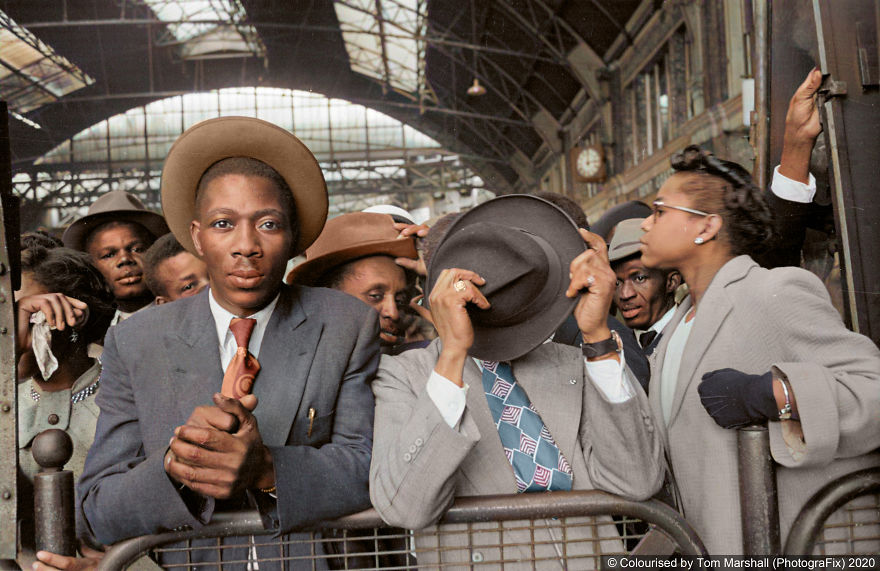
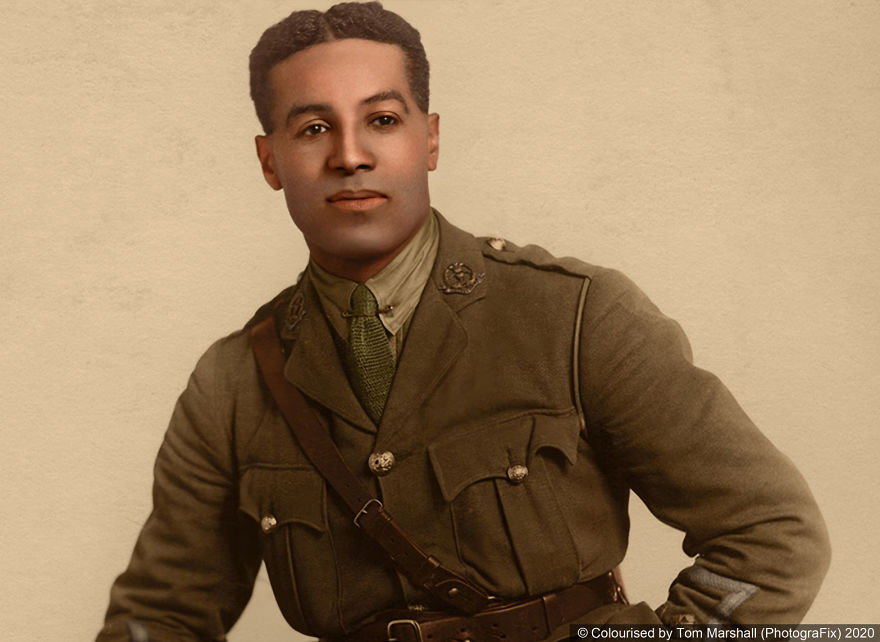
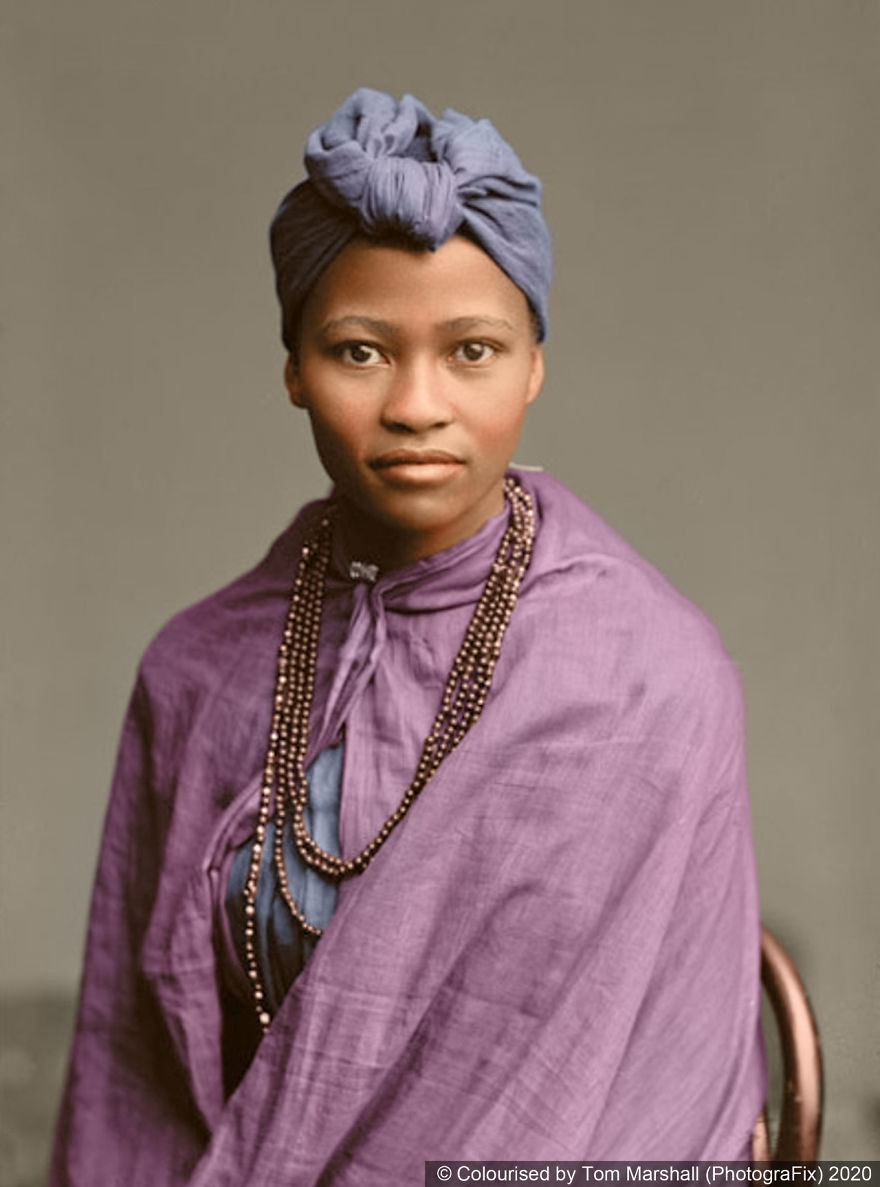
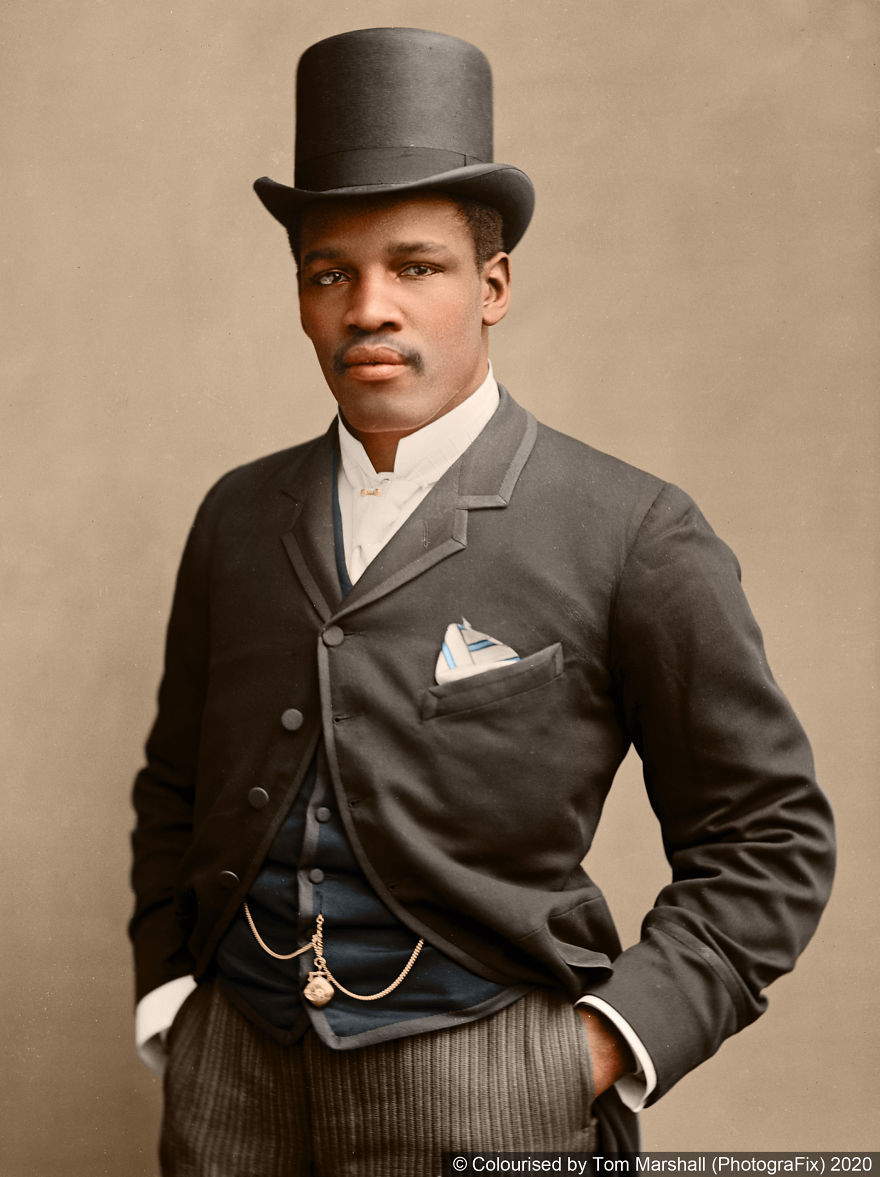
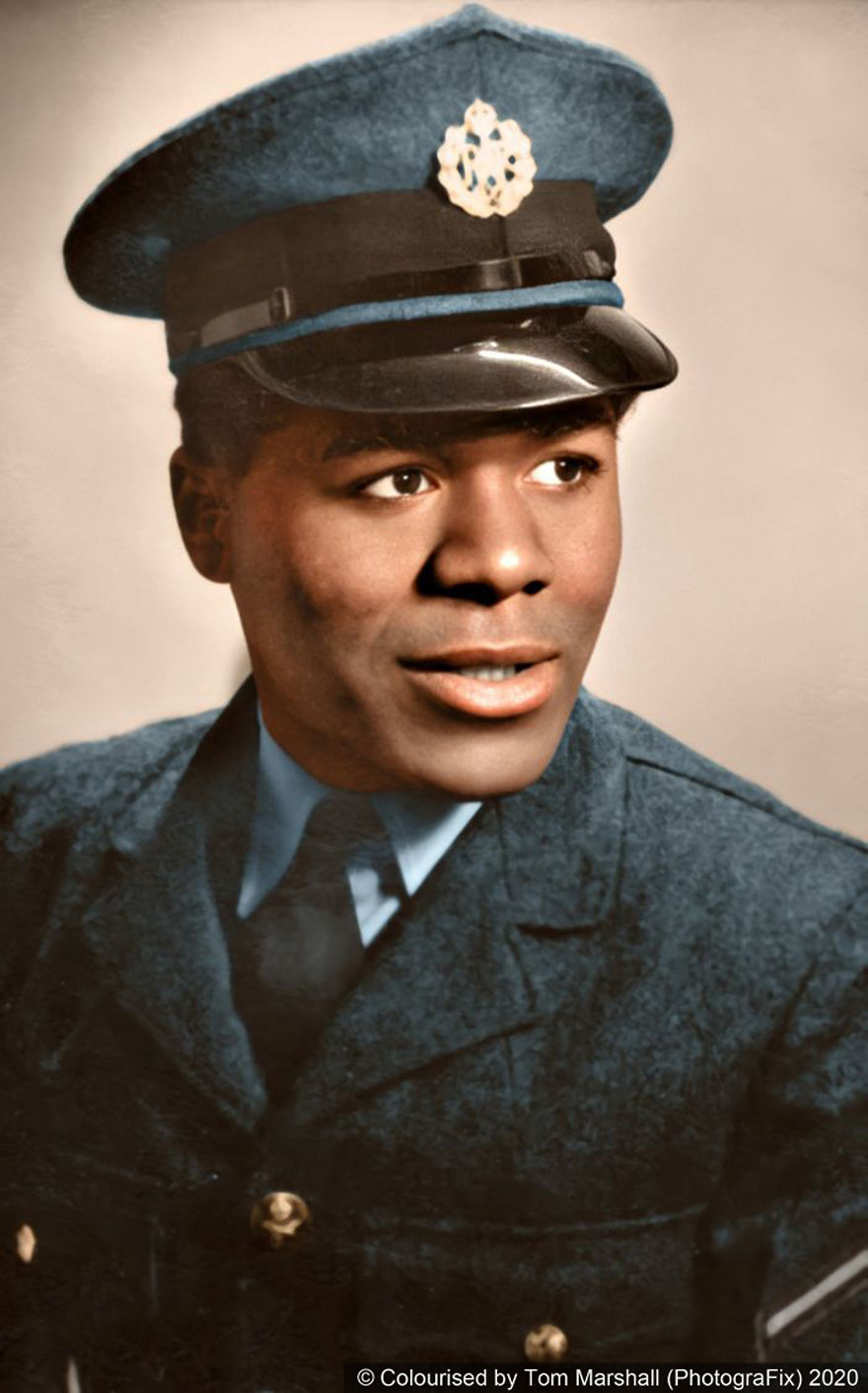
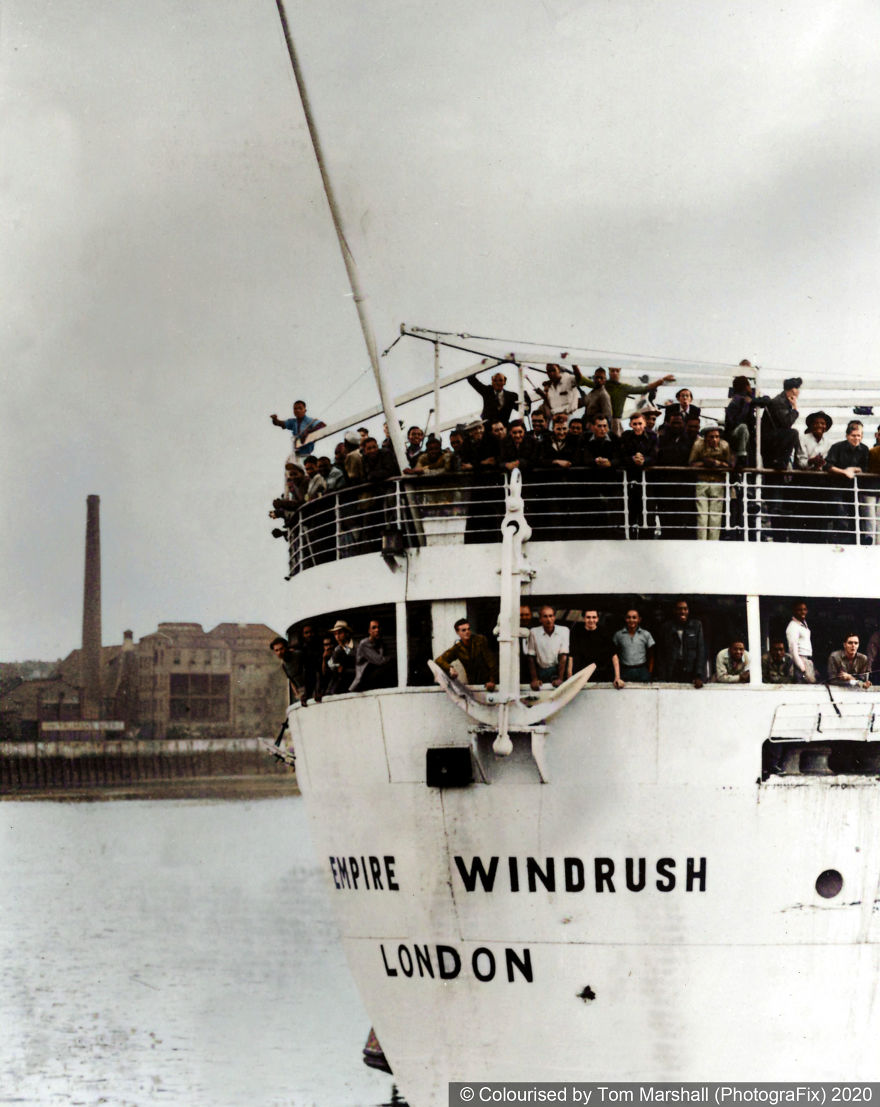
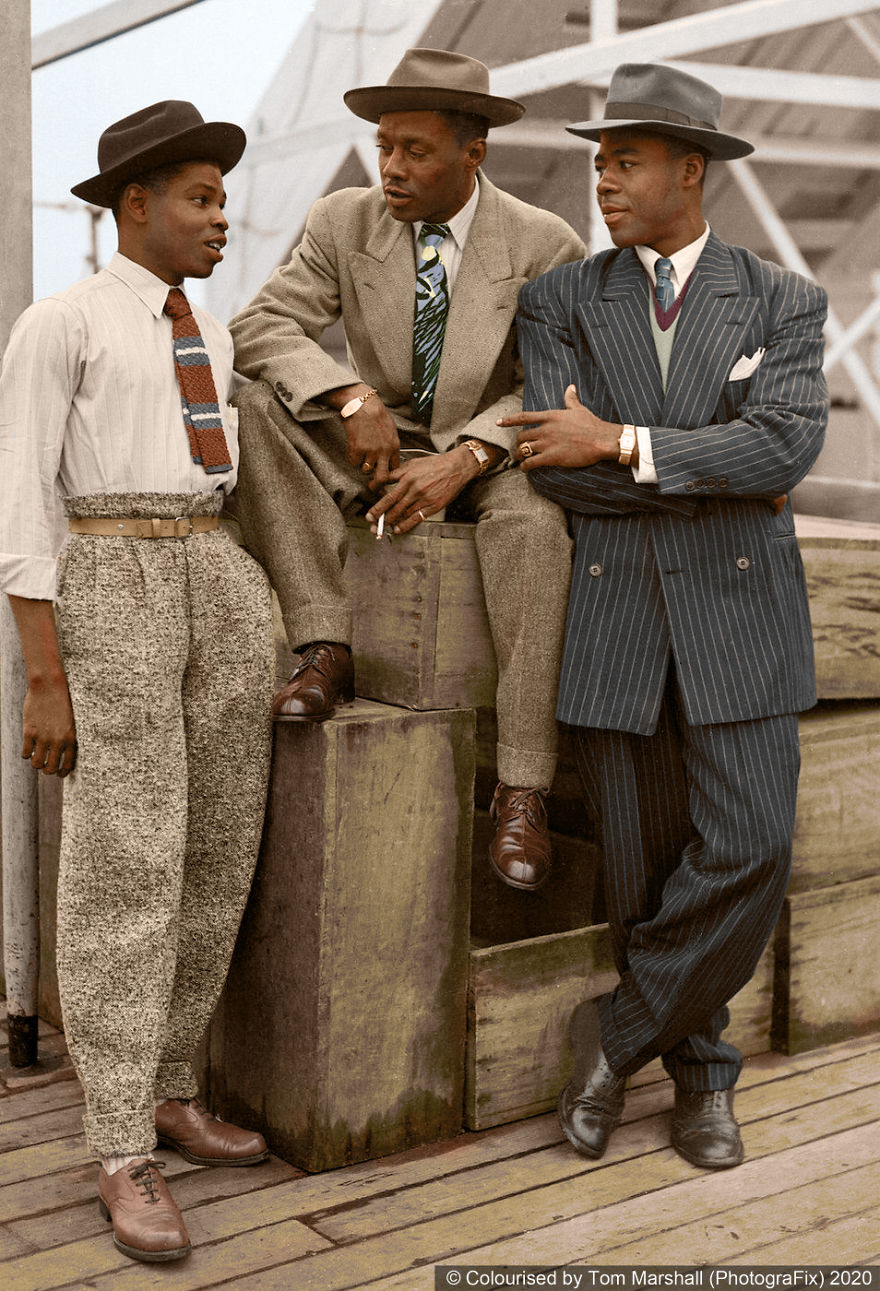
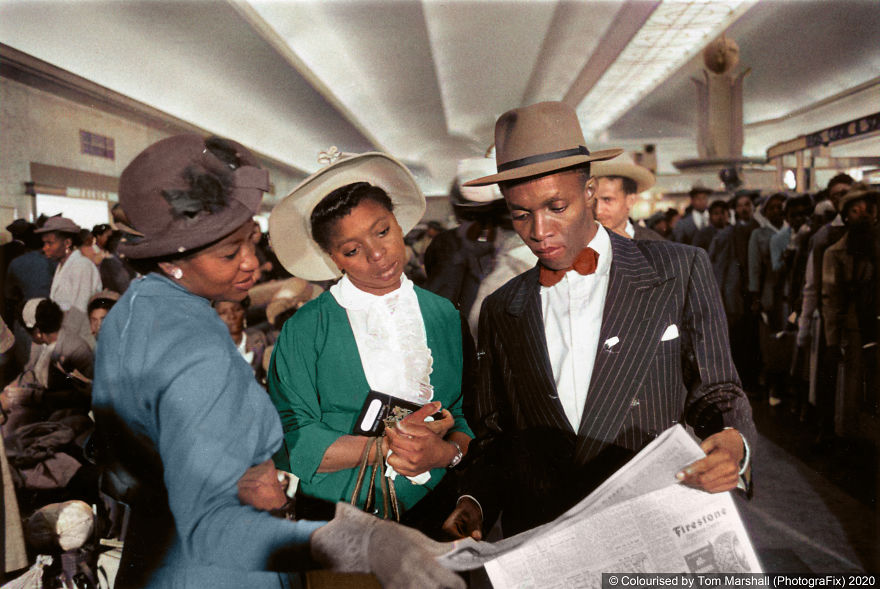
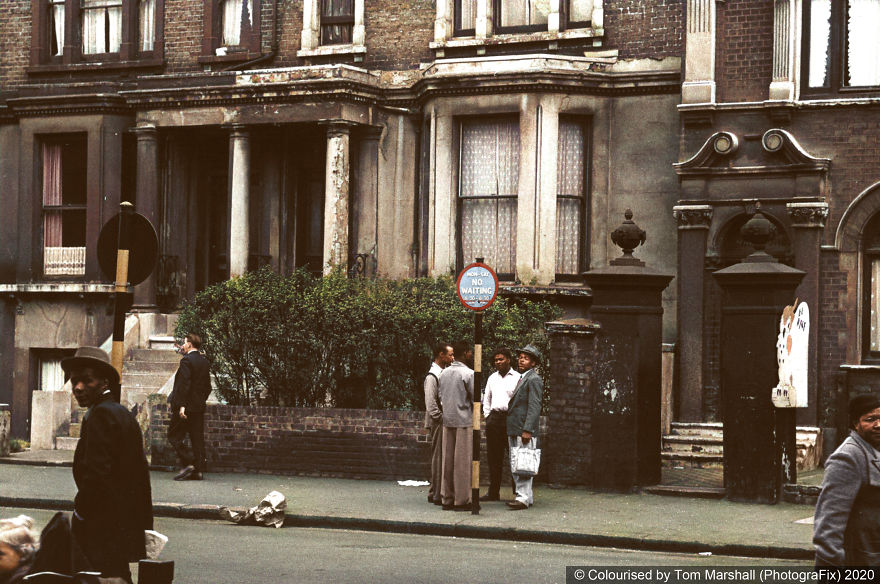
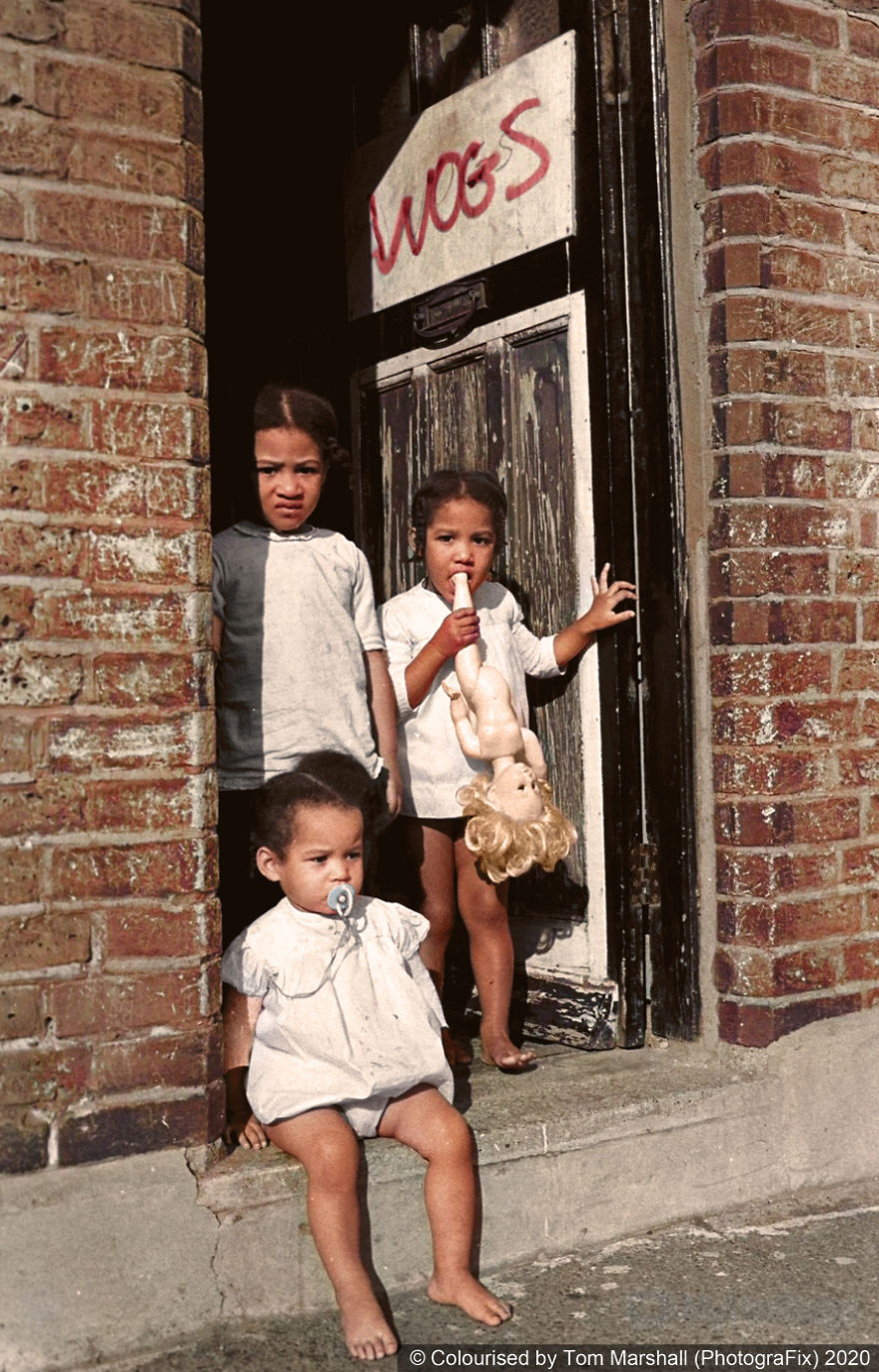
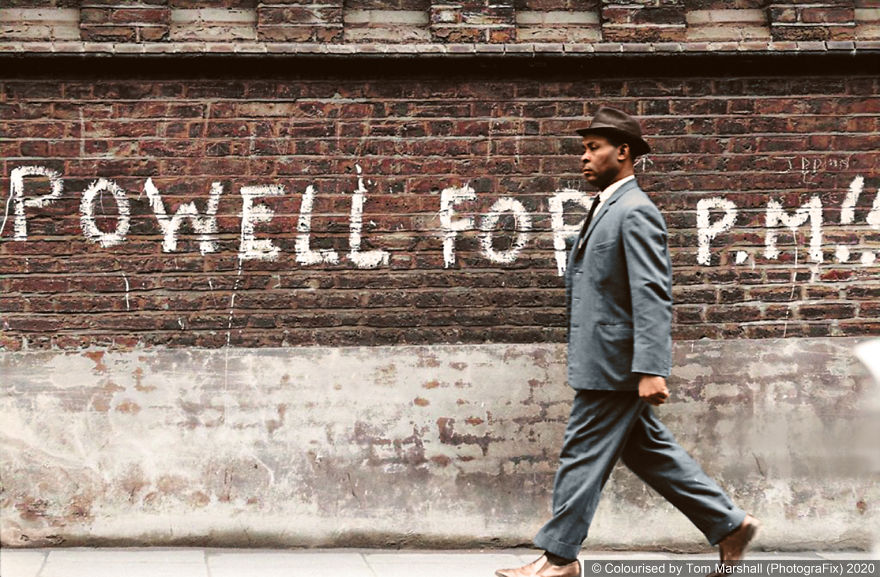



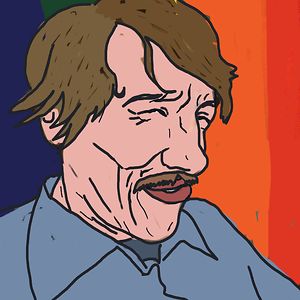












227
44